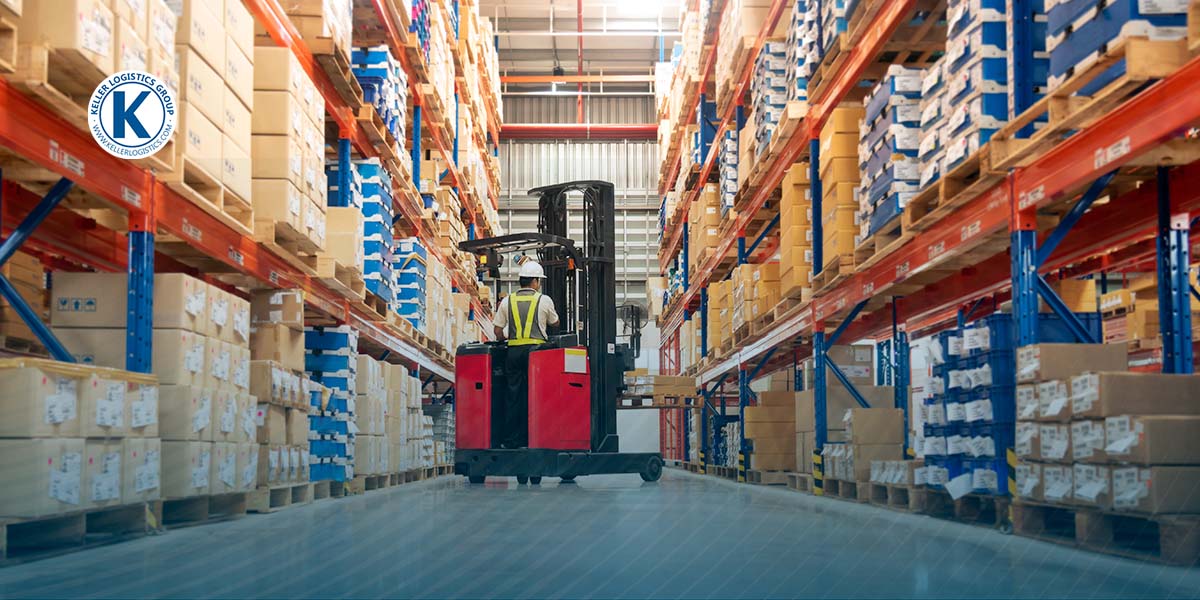

As you grow and expand your business, your logistics operations need to follow. Logistics optimization will allow you to maintain efficiency, effectiveness, and customer satisfaction, but it requires careful planning and strategic operational adjustments. Your business can confidently navigate the challenges of changing logistics by leveraging technology, improving operations, and partnering with a third-party logistics provider (3PL).
Following this multifaceted approach to sustained growth will give your operation a competitive edge in a rapidly changing market and confidence in the success of your endeavors.
Scaling your business operations comes with several challenges that you need to address to ensure growth. Common logistical challenges include:
Turning to your own logistics operations, start by assessing your current processes and identifying areas for expansion or improvement. Look for bottlenecks, non-value-added work, and additional waste that can hinder process performance.
Increase inventory visibility and accuracy by investing in or upgrading your logistics technology. Management systems and analytics programs automate processes and streamline operations:
As your business grows, you may need to increase your distribution center or warehouse space. One easy way to do this is to partner with a 3PL provider offering distribution, warehousing, and co-packing services. This collaboration can help you reach your customers more efficiently as you swiftly scale your business.
There are many benefits of 3PL providers. Partnering with a 3PL is essential to growing your business. This strategic move ensures you have access to the latest technology for your business growth, service providers with expertise and experience, and scalable solutions that can fluctuate with your business. Your business can expand its operations without significant capital investment in new infrastructure. 3PL providers also focus on continuous improvement and innovation, which can lead to additional gains for your business.
Work closely with your suppliers to help ensure timely, reliable raw material delivery. This collaborative planning and forecasting can also help minimize supply chain disruptions.
Adapt to fluctuations in demand, new market opportunities, and disruptions. As part of this strategy, you may need to diversify your supply chain, ensuring you have backup suppliers in case of unforeseen circumstances. Another part of this strategy is to establish teams of rapid responders. These team members can quickly respond to changes in customer demand and logistics, ensuring your operations feel minimal impact.
Lean inventory management minimizes excess stock, reducing your carrying costs and the risk of overstocking. Management techniques like just-in-time (JIT) and Kanban are particularly helpful in ensuring your inventory levels align with demand. Route-optimized shipments can also reduce the trips required, lowering transportation costs. When you partner with a 3PL, they may include this as part of their shipment strategy for your orders.
Streamlining your customer return policies and including flexible return windows may increase sales. Implement reverse logistics solutions to handle these returns quickly and cost-effectively, using the Internet of Things (IoT) to track customer returns. Technology can help identify patterns and improve your product quality.
It is vital to continuously monitor your logistics performance as you adapt to changes in demand or market conditions. Measuring logistical success is crucial for ensuring your business’s operations are cost-effective, efficient and aligned with your strategic goals. Key performance indicators (KPIs) include:
Conduct regular reviews of your logistics performance using KPIs to identify trends and areas where your operations can improve. You can use customer feedback and data from your 3PL to measure against these KPIs and ensure your organization is on track with its growth development. As a bonus to your organizational reputation, you can implement Lean or Six Sigma methodologies to improve process efficiency, enhance product quality, and reduce waste.
Keller Logistics Group is a family-owned, asset-based, third-party logistics company dedicated to serving your business’s co-packing, warehousing, and transportation needs. With over 40 years of experience serving wholesalers, retailers, and manufacturers across the United States, we are a reliable, resourceful, and responsive logistics partner.
We focus on continuous improvement in our operations, which offers your business a chance to grow alongside the latest technological developments in logistics and achieve better customer satisfaction.
You can also take pride in doing business with a company that focuses on reducing its carbon footprint. Some of our environmentally friendly strategies include recycling programs, using Auxiliary Power Units (APUs) to reduce truck idle times, and transitioning to battery-powered forklifts to save on propane for our warehousing and co-packing department.
Outsourcing your logistics allows your business to focus on its core competencies, like product development and marketing. This partnership allows your business to overcome many challenges associated with scaling logistics operations, making room for more efficient and effective growth.
Outsource your logistics to Keller Logistics Group for closed-loop logistics solutions with a single provider you can trust. Scale your logistics operations seamlessly while reaping the financial rewards and working with a team of professionals. By leveraging our established network, you can reduce your logistics costs and move stock with agility and seasonal flexibility.
Contact us today for a non-obligation quote or to learn more about how our 3PL services can benefit your company.